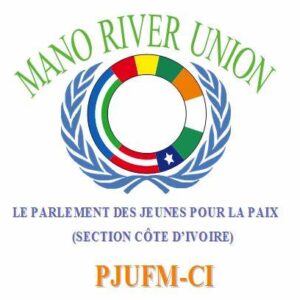PHOTO: The Author
By Austin S. Fallah — A True Son of Liberia, Africa, And The Planet Earth Soil
In the heart of West Africa, a potential powerhouse for economic growth and regional unity lies latent in the Mano River Union (MRU), comprising Liberia, Guinea, Sierra Leone, and Ivory Coast.
While these nations are bound by geographical proximity, their interrelation runs deeper, woven into the fabric of tribal affiliations, cultural exchanges, and shared historical narratives.
Envisioning a unified Mano River Union is not merely a geopolitical strategy; it is a revival of the innate interconnectedness that the colonial incisions had once undermined.
This intellectual disquisition argues that the Mano River Union harbors the capability to ignite African unity through open borders, free trade, and regional cooperation, thereby tipping the scale towards holistic development and integration not only for the Union but also for the Economic Community of West African States (ECOWAS) and the entire African continent.
African unity has been the cornerstone of the continent’s development rhetoric since the decolonization era.
The formation of the Organization of African Unity, now the African Union, was premised on the belief that interconnectedness among African nations would yield a stronger socio-political and economic front.
Regional integration, through units like the Mano River Union, presents a microcosmic model of this vision, eschewing the colonial vestige of separation in favor of a more integrative approach.

At the core of the Mano River Union’s potential for African unity is the profound interrelation among the four nations on multiple platforms.
Tribal lines do not heed the borders drawn by colonial cartographers; they crisscross territories, tying kinships across Liberia, Guinea, Sierra Leone, and Ivory Coast.
Similarly, these countries share agricultural practices and ecological zones, making a collaborative approach to food security and environmental management natural and beneficial.
Furthermore, the mesh of shared cultures enriches human interactions and connections across the Union, creating solid bases for social coherence and cohesion.
The Benefits of Open Borders and Free Trade.
Drawing from the European Union’s model and the strides made by ECOWAS in fostering regional interaction, open borders present vast opportunities.
For the Mano River Union, open borders would mean unfettered access to markets, broadening economic activities, and raising the prospects of investments and job creation.
Free trade, devoid of tariffs, would spur industrial growth, reduce costs, and make locally produced goods competitive.
Furthermore, harmonizing policies across the Union could lead to a reduction in bureaucratic red tape, stimulating cross-border entrepreneurship and innovation.
Non-tariff barriers such as quotas, embargoes, sanctions, levies, and other restrictive regulations often cripple economic potential.
By committing to the elimination of non-tariff barriers, Mano River Union nations stand to accelerate their economic growth.
The free movement of goods without harassment and intimidation would catalyze an environment conducive to trade and commerce, encouraging both local and foreign investors to tap into the region’s markets.
Security considerations are paramount in the quest for unity.
The Mano River Union must take decisive steps to ensure that open borders do not become a conduit for criminal activities.
A unified security protocol can facilitate the shared effort to curb smuggling, human trafficking, and other cross-border crimes.
However, to realize this, there must be a concerted effort to enhance intelligence-sharing, patrol capabilities, and overall security infrastructure.
The fruition of a unified Mano River Union hinges on the decisions and actions of the Heads of State of Liberia, Guinea, Sierra Leone, and Ivory Coast.
These leaders, elected by their people to uphold their best interests, are the custodians of the Union’s potential.
Now is the time for them to transcend beyond nationalistic imperatives and wield the diplomatic tools necessary to cement a unified Mano River Union, for it is their mandate to reconcile the colonial divisions and steer their respective countries toward the path of unity and collective prosperity.
To actualize the Mano River Union’s potential, the four nations must work towards dismantling the physical and psychological barriers that the colonial era imposed.
The true essence of a union – “an association formed by people with a common interest or purpose” – must resonate within all strategies and policies enacted by the Mano River Union leaders.
It is this synergy of purpose that will not only unite the people of the Mano River Union but also stand as a beacon for African unity.
As the Presidents of these four nations look toward their shared horizon, they must recognize that the success of one is intricately tied to the success of all.
It is an undeniable truth that the symbiosis of Liberia, Guinea, Sierra Leone, and Ivory Coast, forged in the crucible of cooperation, is the harbinger of a thriving Africa.
Now, more than ever is the time to act, to build, to unite, for a unified Mano River Union is not just a testament to the ingenuity of its people, but a cornerstone for a united and prosperous Africa.

